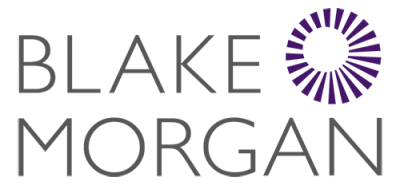All directors should be aware of the statutory and fiduciary duties that they owe to the company. The certain duties and responsibilities are listed at sections 171 to 177 of the Companies Act 2006 and include a duty to act in the company's best interests and promote its success.
For many directors, in particular those of small to medium enterprises, who are also shareholders, these duties in many instances come naturally to them because they fall in line with their own aspirations of maximising company profits. However, it is crucial to recognise that a limited company is an entirely separate legal entity to that of the director and there should be recognition that what is best for the shareholders can sometimes not be what is in the interest of its creditors, especially when the spectre of insolvency appears.
Consider the creditors
It is well recognised, pursuant to section 172(3) Companies Act 2006 that a director should consider or act in the interests of creditors of the company. However, where a company’s solvency is doubtful, this duty is heightened so that a director must consider the interests of the creditors before those of the company.
This duty was set out in the case of Hellard & Anor (Liquidators of HLC Environmental Projects Ltd) v Carvalhol [2014] B.C.C. 337, where Randall QC sitting as a High Court Judge stated:
“I do not detect any difference in principle behind these varying verbal formulations. It is clear that established, definite insolvency before the transaction or dealing in question is not a pre-requisite for a duty to consider the interests of creditors to arise. The underlying principle is that directors are not free to take action which puts at real (as opposed to remote) risk the creditors' prospects of being paid, without first having considered their interests rather than those of the company and its shareholders.”
This paragraph highlights that a company does not have to be insolvent for this duty to arise.
For a company to be insolvent, the two most common situations are:
1) It is unable settle its debts as they fall due (cash-flow insolvency); and/or
2) Its total liabilities are greater than its total assets. (section 123 of the Insolvency Act 1986)
This duty may arise where there is a very real possibility that the company is presently insolvent, or will be as a result of a transaction. For example, when a company’s corporation tax is due to HMRC and instead of making adequate reserves to settle this debt, a dividend is proposed and paid to shareholders using reserves that make it difficult/impossible for the company to discharge the corporation tax debt.
The consequences of a breach of duty can be severe if the company later enters an insolvency process. The director in question could well open himself up to personal liability to account to the company for its losses. Furthermore, there are statutory mechanisms open to a liquidator to set aside transactions.
Where a director has continued to trade the company where it was insolvent, there are avenues for a liquidator to pursue a claim for wrongful trading or misfeasance against a director.
Advice for directors
Our advice to directors in circumstances where solvent trading is in doubt, or there is a concern about the ability to pay a current or future debt, is that the directors should be making and keeping a record of how and why payments or transactions have been entered into. These records can then be used (if a particular payment or transaction is questioned) to illustrate the intention and show that the directors acted in good faith. This should be carried out preferably at board meetings, no matter the size of the company.
Whilst the advice above is in many ways can seem simplistic, we suggest that keeping records of the rationale behind director decisions is imperative.
Blake Morgan LLP provides commercial legal advice to distressed businesses of all sizes, from SMEs to large corporates and group companies through its Business Support & Insolvency team and its Corporate & Shareholder Dispute team. For more advice regarding individual situations, please contact our Paul Caldicott on 029 2068 6181 or our Delme Griffiths on 029 2068 6199.









